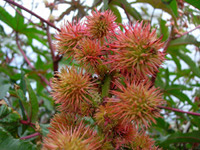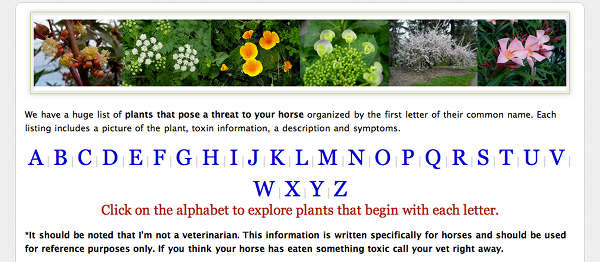
When it comes to food, horses have to be quite picky. You’d be amazed at how many plants these handsome herbivores can’t eat. One of the first sections I created on The Equinest was the toxic plant section & it had a complete facelift not too long ago.
Learning From Social Media
Last week I posted a link to one of the toxic plants on my social profiles and it got quite a few re-tweets. So I got to thinking that it might be a good idea to start a new series dedicated to all of the plants that horses can’t eat.
Super Picky Horses
Although we love them dearly, horses can be difficult creatures to care for at times. However, I guess confining an animal of prey will always have it’s consequences…does a more accident prone animal exist?
 All of that aside, we love them and want to be sure they are safe, so it’s important to know what they can & can’t eat. Each plant page provides clear images of each plant (I even took some of them myself) and basic information about their danger, toxic parts and potential symptoms.
All of that aside, we love them and want to be sure they are safe, so it’s important to know what they can & can’t eat. Each plant page provides clear images of each plant (I even took some of them myself) and basic information about their danger, toxic parts and potential symptoms.
You Might Be Surprised
Although it makes sense that your horse can’t eat exotic plants like African Wonder Tree and Lily of the Valley. You also have to keep an eye out for more common culprits like Ivy, Clover and most Mustard varieties. So once a week I’ll post about another toxic plant variety with pics & quick facts so they are easy to learn about.
Don’t wait for me…head over to the toxic plants section and learn something new that benefits you, your horse & your vet bill.
*It should be noted that I’m not a veterinarian. This information is written specifically for horses and should be used for reference purposes only. If you think your horse has eaten something toxic call your vet right away.

